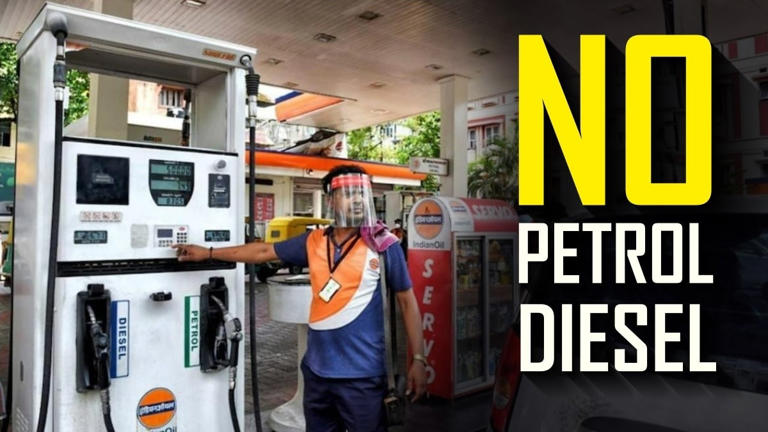Delhi has made a bold move to clean up its air. The government recently announced that vehicles over 10 or 15 years old will no longer be allowed to refuel in the city. This decision aims to fight rising pollution and protect public health. But what does this mean for vehicle owners, fuel stations, and the auto industry? Let’s explore the details and impacts of this new policy.
The New Policy Explained: What Exactly Has Changed?
Overview of the Banning Policy
Delhi’s government introduced a rule stopping older vehicles from getting fuel. Starting from a specific date, drivers of these vehicles will have to find alternative ways to operate or face fines. This policy is part of Delhi’s larger plan to make the city cleaner and safer. It’s a strong signal that older, more polluting vehicles are no longer welcome on city roads. While the rule began in Delhi, experts say similar policies could spread to other parts of India.
Criteria for Vehicle Eligibility
What exactly qualifies as an “older vehicle”? Generally, vehicles older than 10 or 15 years won’t be allowed to refuel. This includes private cars, commercial trucks, taxis, and buses that meet the age threshold. There are some exemptions—for example, emergency vehicles or specialized vehicles—but for most drivers, the rule is clear. This age limit is based on vehicle maintenance standards and emission levels.
Enforcement Mechanisms and Penalties
The government plans to keep an eye on compliance through a mix of technology and monitoring. Vehicle registration data, CCTV cameras, and fuel station checks will play a role. If caught refuelling an old vehicle, owners face penalties like fines or warnings. Repeated violations could lead to further consequences, such as suspension of vehicle registration. Enforcement is expected to be strict to make sure the policy works.

Key Points :
-
Fuel ban on petrol vehicles 15+ years and diesel vehicles 10+ years starts in Delhi today
-
Delhi vehicles cause 51% of local pollution, per Centre for Science and Environment analysis
-
Ban affects over 62 lakh vehicles in Delhi and millions more in neighbouring states
Environmental and Health Impacts of Banning Old Vehicles from Refuelling
Addressing Vehicle Emissions in Delhi
Delhi faces some of the worst air pollution in the world. Vehicles come from all over, and many of the old ones emit a lot of harmful gases. Experts say that older vehicles pump out twice or even three times more pollutants than newer models. These emissions are a main cause of smog, respiratory illnesses, and heart problems among residents.
Expected Improvements in Air Quality
By cutting down refuelling of old vehicles, Delhi aims to reduce tiny particles called PM 2.5 and PM 10. These are the stuff that gets deep into our lungs and causes health issues. Real improvement might take a few months or even years, but signs of cleaner air are already visible. City officials expect a noticeable drop in pollution levels once the policy’s effects kick in fully.
Public Health Benefits
Lower emissions mean fewer breathing problems and fewer hospital visits. Children, the elderly, and those with existing health issues will benefit most. Health experts are optimistic, saying that reducing older vehicle emissions will lead to fewer cases of asthma, bronchitis, and heart attacks in Delhi. Cleaner air will help residents breathe easier every day.
Impact on Vehicle Owners and the Auto Industry
Challenges Faced by Vehicle Owners
Many owners of older vehicles face tough choices. Replacing a 15-year-old car isn’t cheap, and not everyone can afford a new one right away. Some might worry about logistics, registration, and finding affordable options. This policy may cause financial strain, especially for small business owners relying on older trucks or taxis.
Incentives and Support Measures
To ease the burden, the government has announced schemes to encourage vehicle replacement. These include discounts on new vehicles, scrappage incentives, and subsidies for electric vehicles. The goal is to make it easier for owners to upgrade without facing heavy costs. Such incentives can make the transition smoother for many.
Effects on Fuel Stations and Retailers
Fuel stations will likely see shifts in customer footfall. Fewer old vehicles refuelling could decrease fuel sales temporarily. At the same time, stations might start investing in electric vehicle charging points. This aligns with India’s long-term push toward clean mobility, opening new revenue streams for fuel retailers.
Auto Industry Adjustments
Manufacturers are already moving toward electric vehicles (EVs). Delhi’s policy acts as a catalyst, prompting more companies to prioritize EV models. Expectations are higher for affordable, efficient electric cars, scooters, and bikes. This shift not only benefits the environment but also opens new business opportunities for automakers.
Broader Implications and Future Outlook
Policy Precedents and Global Comparisons
Many cities worldwide have taken steps to phase out old vehicles. London, Paris, and Los Angeles have similar rules. They show that strict policies combined with support measures can improve air quality. India’s move follows this global trend, with Delhi setting a precedent for other cities.
Potential for Expansion to Other Regions
If successful, this policy might be adopted elsewhere in India. Larger cities with serious pollution issues could follow Delhi’s lead. However, challenges include infrastructure for electric vehicles and ensuring the public’s acceptance. The key will be balancing environmental goals with people’s needs.
Innovations and Technological Solutions
Advances like fast-charging EV stations and smart monitoring systems are making it easier for cities to enforce cleaner mobility. Innovations using IoT and telematics can help track compliance and reduce cheating. These tools will be vital as India speeds up its efforts toward greener transport.
Actionable Tips for Vehicle Owners and Stakeholders
- Consider upgrading to a newer model or electric vehicle soon.
- Explore government schemes and incentives for vehicle scrappage and purchase.
- Plan your vehicle replacement early to avoid penalties and stay compliant.
- Keep yourself informed about new policies, infrastructure updates, and incentives.
- For fleet owners, early adoption of EVs can save money and avoid disruptions.
Conclusion
Delhi’s ban on refuelling vehicles over 10 or 15 years old is a clear step toward cleaner air and healthier communities. While transition challenges exist, the long-term benefits for the environment and public health outweigh the hurdles. This bold move shows how cities can lead the way in promoting sustainable urban mobility. If more regions follow Delhi’s example, India could see a significant reduction in air pollution and a boost for clean vehicle technology. Collective efforts from vehicle owners, government, and industry are essential for a brighter, cleaner future.

